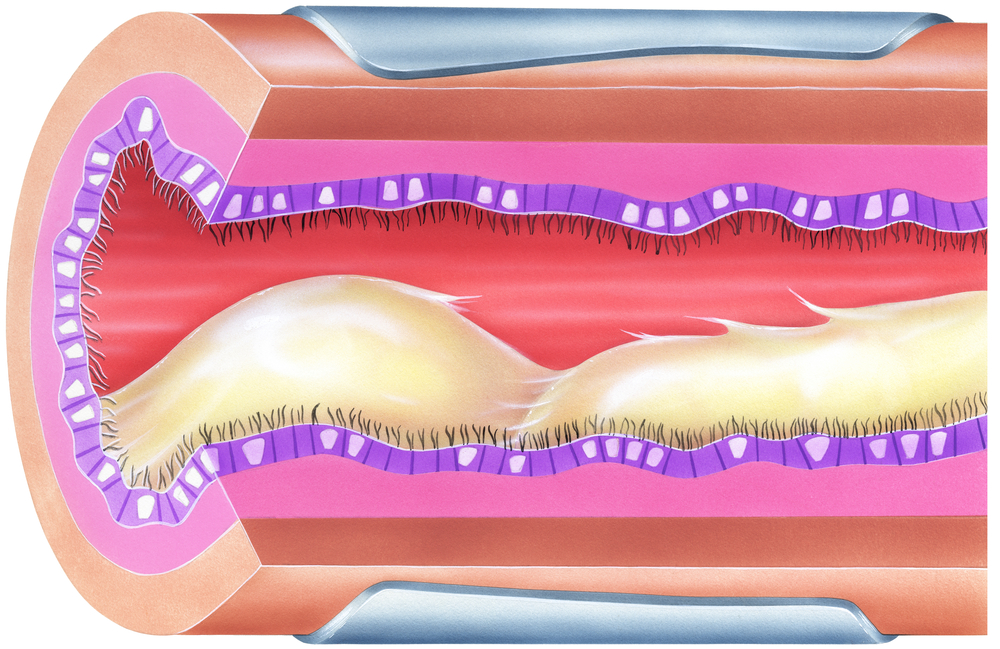Dehydrated Airways Lead to Thick Mucus in Cystic Fibrosis, Study Reports

Mucus proteins that fail to achieve the correct structure cause airway secretions to become thick and sticky in patients with cystic fibrosis (CF), leading to the well-known symptoms of the disease, according to a study.
The reason the proteins fail to assume the shape that’s seen in healthy people is simple, the researchers said: lack of water. Their findings suggest that increasing the water content of the airway lining would benefit cystic fibrosis patients.
The insights their research has provided prompted the University of North Carolina team to think about two ways of addressing the thick mucus problem. The first possibility is to increase the water content atop the cell layer lining the lungs. The second is to develop drugs that break mucus proteins into smaller pieces when water levels are low.
The research, “Defective postsecretory maturation of MUC5B mucin in cystic fibrosis airways,” was published in the journal JCI Insight.
“In healthy people – after airway surface cells secrete mucins [mucus proteins] – the proteins unfold from a compact form to a more open, linear form,” Mehmet Kesimer, PhD, associate professor of pathology and laboratory medicine at the University of North Carolina at Chapel Hill, said in a press release. “And we found that this unfolding process is defective in CF airway epithelia,” said Kesimer, the senior author of the study.
The Cystic Fibrosis News Today forums are a place to connect with other patients, share tips and talk about the latest research. Join today!
The researchers have already addressed the issue of thick mucus in several publications. They and others have noted that too little water covers the cell layer of CF patients’ airways.
In healthy people, airway cells secrete the microscopically thin film of liquid. But people with CF have an abnormally low outflow of chloride ions, which are necessary to drive the cellular water pumps.
“Those chloride ions essentially hold water outside the cells,” Kesimer said. “We need that water there. When that flow of chloride is reduced, the airway surfaces become dehydrated.”
Mucus is made up of a range of molecules, and when water is lacking, the concentration of proteins and other mucus molecules rises.
In their latest study, the researchers discovered that a high concentration of proteins is not the only thing that make mucus thick and sticky. When a cell secretes mucus proteins, they are shaped like a compact ball. Once the proteins are outside the cell, they rapidly unfold to take on a more linear shape. But the team found that in cells from CF patients, this does not happen.
Their experiments confirmed that lack of water causes the abnormal shape of the proteins in CF. When the team took cells from healthy humans, then reduced their water layer by preventing them from transporting chloride ions, they saw the same abnormal protein shape as in CF.
“We did experiments with saliva, primary human cells, and even the tracheas of pigs, and they all indicated that dehydration is the critical factor,” Kesimer said.
Their discoveries indicate that increasing the airway lining’s water content would help CF patients. In fact, using inhaled hypertonic saline, or salt water, to hydrate the airways, is the subject of clinical trials that are occurring at the moment.
The team speculated that it might also be possible to develop drugs that break up the abnormally large and condensed mucus proteins into smaller pieces to make the mucus less thick.







